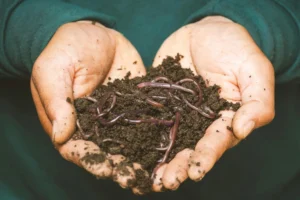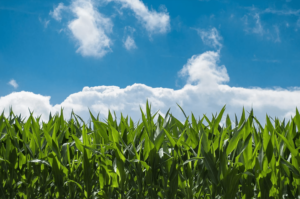What is the Role that Potassium Plays in the Soil?
Soil health significantly impacts agricultural productivity and crop quality. Potassium, a crucial nutrient, plays a vital role in enhancing plant growth and development. It helps regulate plant water balance, activates essential enzymes, and promotes robust root growth. Despite its importance, many soils suffer from potassium deficiency, leading to reduced crop yields and poor plant health. In this blog post, we explore the role of potassium in soil health, identify signs of its deficiency in plants, and discuss methods to enhance soil potassium levels. We’ll also cover the benefits of maintaining optimal potassium levels for both crops and soil health, ensuring a productive and sustainable agricultural environment.
1. Introduction to the Importance of Soil Health
Soil health is fundamental to sustaining life on Earth, significantly influencing plant growth, agricultural productivity, and the balance of ecosystems. The significance of maintaining robust soil health is crucial as it supports billions of microorganisms, including bacteria, fungi, and insects, which are vital for ecological processes.
These microorganisms decompose organic matter, release essential nutrients, and enhance soil structure, creating an optimal environment for plants. Healthy soil also improves nutrient availability, particularly potassium, which is essential for plant growth. This nutrient supports crucial processes such as enzyme activation, osmoregulation, and water transport.
Moreover, soil health impacts water quality and conservation. Soils with good health have a high water-holding capacity, which minimizes soil erosion, runoff, and nutrient leaching, thereby protecting water bodies and ensuring sustainable water resources.
Overall, the role of soil health is paramount in agriculture, biodiversity, and environmental sustainability. By appreciating the vital contributions of potassium and other nutrients, we gain deeper insights into the importance of nurturing and preserving a balanced soil ecosystem.
2. Understanding the Role of Essential Nutrients in Soil
Understanding the importance of potassium in soil health requires a grasp of the role essential nutrients play in soil dynamics. Soil is a complex ecosystem where various chemical, physical, and biological processes support plant growth. Essential nutrients are fundamental for plants to perform vital functions and thrive.
 These nutrients are divided into three categories: macronutrients, secondary macronutrients, and micronutrients. Macronutrients like nitrogen, phosphorus, and potassium are crucial for overall growth and are required in large amounts. Secondary macronutrients, which include calcium, magnesium, and sulfur, are needed in moderate quantities. Micronutrients such as iron, manganese, zinc, copper, boron, and molybdenum, though needed in smaller amounts, are vital.
These nutrients are divided into three categories: macronutrients, secondary macronutrients, and micronutrients. Macronutrients like nitrogen, phosphorus, and potassium are crucial for overall growth and are required in large amounts. Secondary macronutrients, which include calcium, magnesium, and sulfur, are needed in moderate quantities. Micronutrients such as iron, manganese, zinc, copper, boron, and molybdenum, though needed in smaller amounts, are vital.
Each nutrient plays a specific role in the soil-plant system. For example, nitrogen promotes leaf and stem growth; phosphorus is crucial for root development and flowering; potassium enhances plant health and vigor. Potassium is particularly important for regulating water movement, improving drought tolerance, boosting nutrient uptake, and activating enzymes. It also aids in disease resistance, stress tolerance, and improving fruit quality.
The availability and balance of these nutrients are crucial for soil health. Deficiencies or imbalances can restrict plant growth and productivity, affecting crop yields and overall soil condition. Potassium is known to improve soil structure and fertility, underscoring its significance.
In essence, the role of essential nutrients, including potassium, forms the foundation for healthy soil. Ensuring an adequate supply of these nutrients supports optimal plant growth, enhances crop resilience, and maintains soil health and productivity.
3. Exploring the Significance of Potassium in Soil Health
Potassium, is an essential nutrient for plant growth and plays a critical role in maintaining soil health. It is one of the three major macronutrients that plants require, alongside nitrogen and phosphorus. Despite often being overshadowed by these nutrients, the importance of potassium in soil health is significant.
Firstly, potassium regulates the opening and closing of stomata—tiny openings on plant leaves. This process is crucial for efficient water and nutrient uptake, enhancing the plant’s ability to withstand drought and improving its overall resilience.
Additionally, potassium activates many enzymes vital for plant metabolism. These enzymes support protein synthesis, regulate photosynthesis, and promote carbohydrate production, all essential for plant growth and development.
Potassium also enhances soil’s structural stability, improving its water retention and resistance to erosion. This benefit is particularly valuable in areas susceptible to drought or heavy rainfall, helping to maintain soil moisture levels and prevent nutrient leaching.
Moreover, potassium is fundamental for robust root development and strengthens plant cell walls. This fortification provides a strong foundation for optimal growth and assists in the transport of sugars and carbohydrates throughout the plant, ensuring nutrients reach all parts, including fruits and flowers.
Importantly, potassium significantly improves crop quality. It boosts the flavor, color, and nutritional value of fruits and vegetables, increasing their market appeal. It also enhances plants’ resistance to diseases, pests, and environmental stresses, leading to higher yields and better agricultural sustainability.
To preserve soil health, ensuring a sufficient potassium supply is crucial. Regular soil testing can identify potassium levels and help guide fertilization strategies. By recognizing the role of potassium in soil health, farmers and gardeners can enhance their growing conditions and achieve healthier, more productive plants.
4. The Functions and Benefits of Potassium for Plants
Potassium is often described as the “silent partner” in soil health, playing an essential yet frequently underestimated role in promoting optimal plant growth and health. As a critical macronutrient, potassium is fundamental to numerous plant functions.
Firstly, potassium is vital for regulating plant water balance. It controls the movement of water and nutrients within the plant, ensuring cells stay hydrated and nutrients reach where they’re needed most. This regulation is particularly crucial during drought or heavy rainfall, helping plants withstand environmental stresses and maintain resilience.
Potassium also catalyzes key enzymatic reactions necessary for synthesizing proteins, carbohydrates, and other vital compounds for plant growth and development. It facilitates the conversion of sugars into starch, which serves as an energy reserve, and activates enzymes involved in photosynthesis—the process by which plants convert sunlight into energy.
Moreover, potassium boosts plant health by enhancing their ability to fight diseases and pests. It strengthens cell walls, making them more resistant to invasion and infection, and regulates plant hormones, which promotes root development and improves nutrient uptake and overall plant vigor.
Additionally, adequate potassium levels are linked to higher-quality crop yields. Potassium-rich plants typically produce fruits, vegetables, and grains that are not only higher in quality but also better in flavor, color, and nutritional value. It also helps transport sugars from leaves to fruits, ensuring proper growth and optimal yields.
In conclusion, the role of potassium in soil health and plant growth is indispensable. By regulating water balance, facilitating essential enzymatic reactions, enhancing disease resistance, and improving crop quality, potassium supports the overall health and productivity of plants. Farmers and gardeners must ensure sufficient potassium levels in their soil to optimize plant growth and achieve healthy, abundant harvests.
5. Signs of Potassium Deficiency in Soil and Plants
Recognizing signs of potassium deficiency is key to ensuring soil health and optimal plant growth. Potassium (K), an essential nutrient, activates enzymes, regulates water movement, and enhances photosynthesis and growth.
A clear sign of potassium deficiency in soil is poor plant growth. Plants without enough potassium often show stunted growth, smaller leaves, and reduced vigor. Weak stems may also be more prone to bending or breaking under their weight. Moreover, a lack of potassium can stunt root development, impairing a plant’s ability to absorb water and nutrients.
Leaf discoloration is another symptom of potassium deficiency. Typically, older leaves will yellow at the edges while veins stay green, a condition known as marginal chlorosis. In severe cases, the edges may also show signs of necrosis, or tissue death.
Potassium deficiency can also diminish a plant’s reproductive abilities, affecting the size, quality, and yield of fruits and vegetables. This can significantly impact the economic value of agricultural crops.
It’s important to note that symptoms can vary between plant species, with some exhibiting more pronounced signs than others. Regular soil and plant tissue tests are critical for accurately diagnosing potassium deficiencies.
To correct a deficiency, applying potassium-rich fertilizers, such as potassium sulfate or potassium chloride, is effective. However, it’s crucial to keep nutrient levels balanced to prevent excess potassium, which can also harm plant health.
Understanding and addressing potassium deficiency through regular monitoring and balanced fertilization are crucial steps in maintaining soil health and enhancing plant growth. Proactive nutrient management ensures that plants receive the essential potassium they need to thrive.
6. Sources of Potassium for Soil Enrichment
Potassium is essential for robust plant growth, significantly influencing various physiological processes such as water regulation, enzyme activation, and the synthesis of proteins and carbohydrates.
To effectively boost potassium levels in the soil, it’s important to understand the variety of sources available. Potassium chloride, commonly known as muriate of potash, is a widely used and accessible form of potassium fertilizer. Another beneficial option is potassium sulfate, which supplies not only potassium but also sulfur, crucial for healthy plant growth.
Organic options for enhancing soil potassium are both effective and environmentally friendly. For instance, compost or well-rotted manure not only enriches the soil with potassium but also improves soil structure and fertility. Similarly, wood ash from burned plant material is a rich source of potassium, along with other nutrients like calcium and phosphorus.
Crop residues such as banana peels, coffee grounds, and vegetable scraps can also be incorporated into the soil. These materials naturally increase potassium levels while also boosting soil health by enhancing organic matter and nutrient availability.
The selection of a potassium source should be tailored to the specific needs of the plants and the existing soil conditions. Conducting a soil test is a proactive step that helps determine the existing potassium levels and guides the appropriate choice and dosage of potassium amendments.
By understanding the diverse sources of potassium and their roles in soil enrichment, farmers and gardeners can make knowledgeable decisions to foster healthy plant growth and maximize yields. Maintaining a well-nourished soil, rich in potassium, lays the groundwork for thriving crops and abundant harvests.
7. Methods to Improve Potassium Levels in Soil
Maintaining adequate potassium levels in soil is vital for optimal plant growth and soil health. There are several effective ways to boost potassium in your soil, ensuring your plants are well-nourished and thriving.
- Organic Matter: Adding organic matter like compost or well-rotted manure to the soil is a fantastic way to naturally increase potassium levels. These materials release potassium slowly, providing a continuous source for plants.
- Cover Crops: Utilizing cover crops such as legumes and grasses can also enhance soil potassium. These plants draw potassium from deep within the soil and store it in their tissues. When decomposed, they release this potassium back into the soil, enriching it for future crops.
- Mulching: Applying organic mulches, such as straw or wood chips, helps maintain soil moisture and temperature while gradually boosting potassium levels as they decompose.
- Potassium Fertilizers: For quick results, especially in severe deficiency cases, potassium fertilizers like potassium sulfate, potassium chloride, and potassium nitrate are highly effective. These can be applied directly to the soil or used as a foliar spray to meet crop-specific demands.
- Balanced Fertilization: It’s crucial to keep nutrient levels well-balanced. Regular soil testing can guide the application of potassium fertilizers, ensuring that plants receive just the right amount to avoid the negative effects of excess or insufficient potassium.
By implementing these methods to enhance potassium in your soil, you not only ensure optimal plant health but also contribute to the sustainability of your farming practices. Remember, a well-balanced soil is key to successful agriculture and the role of potassium is integral to achieving robust plant growth and high yields.
8. Best Practices for Potassium Management in Agriculture
Maintaining healthy soil and maximizing crop yield heavily depend on effective potassium management. Potassium is an essential nutrient crucial for plant growth and development. It supports various physiological processes, including photosynthesis, enzyme activation, and water regulation, making it indispensable for plant health.
To ensure optimal potassium levels in the soil, follow these best practices:
- Regular Soil Testing: Conduct soil tests regularly to determine current potassium levels. This information helps farmers make informed decisions about fertilizer application.

- Tailored Fertilization: Based on soil test results, customize potassium fertilization strategies to meet the specific needs of crops. Consider factors such as crop type, yield goals, and soil type when determining appropriate potassium rates.
- Proper Timing: Apply potassium fertilizers at critical growth stages, such as flowering and fruit development, when plants have the highest potassium uptake. This ensures an adequate supply when plants need it most.
- Application Methods: Choose the method of potassium application based on crop and soil needs. Common methods include broadcasting, side-dressing, and fertigation. Each method has its advantages and should be selected considering crop characteristics, soil conditions, and available equipment.
- Monitoring and Adjustment: Regularly monitor the effectiveness of potassium management practices through soil testing and plant tissue analysis. This allows farmers to assess the impact of their strategies and make necessary adjustments to optimize potassium availability and uptake by plants.
In conclusion, effective potassium management is crucial for maintaining soil health and promoting optimal crop growth. By following best practices such as regular soil testing, tailored fertilization strategies, proper application timing, and ongoing monitoring, farmers can ensure their crops have adequate potassium levels, leading to improved yields and overall agricultural productivity.
9. The Environmental Impact of Potassium Use in Farming
When discussing soil health and nutrients, it’s crucial to consider the environmental impact of potassium use in farming. Potassium, a primary macronutrient, is vital for plant growth and development. However, balancing its application while minimizing environmental harm is essential.
One major concern with potassium use is water pollution. Excessive potassium-based fertilizers can cause runoff, leading to eutrophication in water bodies. This process increases algae and aquatic plant growth, depleting oxygen and harming aquatic life.
Moreover, producing potassium fertilizers has significant environmental consequences. Extracting and processing potassium require substantial energy and result in greenhouse gas emissions. Transportation and distribution further contribute to carbon emissions.
To mitigate these impacts, adopting sustainable practices is crucial:
- Precision Agriculture: Optimize nutrient application to ensure potassium is used efficiently, reducing waste and runoff.
- Soil Testing: Regularly test soil to accurately determine potassium needs, preventing over-application.
- Controlled-Release Fertilizers: Use fertilizers that release potassium slowly, minimizing nutrient leaching.
- Alternative Sources: Consider organic amendments or bio-based fertilizers, which often have lower environmental impacts and improve soil health.
In conclusion, while potassium is essential for soil health and crop productivity, its use can have environmental effects. Farmers should adopt sustainable practices and explore alternative solutions to balance potassium use and minimize environmental harm, ensuring agriculture’s long-term sustainability.
10. Conclusion: Prioritizing Potassium for Optimal Soil Health
In conclusion, prioritizing potassium is essential for achieving optimal soil health. This blog post has explored the vital role of potassium in supporting plant growth and overall soil fertility.
Potassium is involved in crucial physiological processes in plants. It regulates stomata, aiding in water and nutrient uptake, and activates enzymes for photosynthesis, protein synthesis, and carbohydrate metabolism.
Potassium also enhances plant resilience to environmental stresses like drought, diseases, and pests. Ensuring adequate potassium promotes stronger root development, better nutrient absorption, and increased crop yields.
Regular soil tests are necessary to determine nutrient levels and adjust potassium as needed. Adequate potassium can be achieved with potassium-rich fertilizers or organic matter, such as compost or manure.
Additionally, crop rotation and cover cropping help maintain a balanced nutrient cycle and prevent potassium depletion. These practices create a sustainable soil ecosystem supporting long-term plant health and productivity.
Recognizing potassium’s role in soil health is crucial for agricultural success. Prioritizing potassium fosters a thriving soil environment, healthy plants, and sustainable farming practices. Let’s prioritize potassium and unlock our soils’ full potential for a greener, more productive future.
We hope you found our blog post on potassium’s role in soil health informative. Potassium is crucial for plant growth, root development, and soil fertility. By understanding its significance and implementing proper soil management practices, you can enhance soil health and productivity. Regularly test your soil’s potassium levels, prioritize balanced nutrient management, and consider organic potassium sources for optimal plant growth and yield. With these insights, you can cultivate thriving, nutrient-rich gardens and farms. Happy gardening!
Here is a list of products in our lineup that include Potassium
——————————

